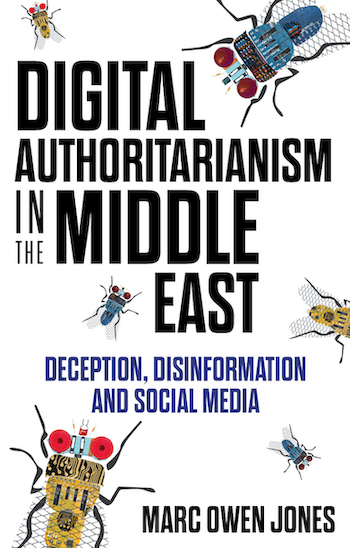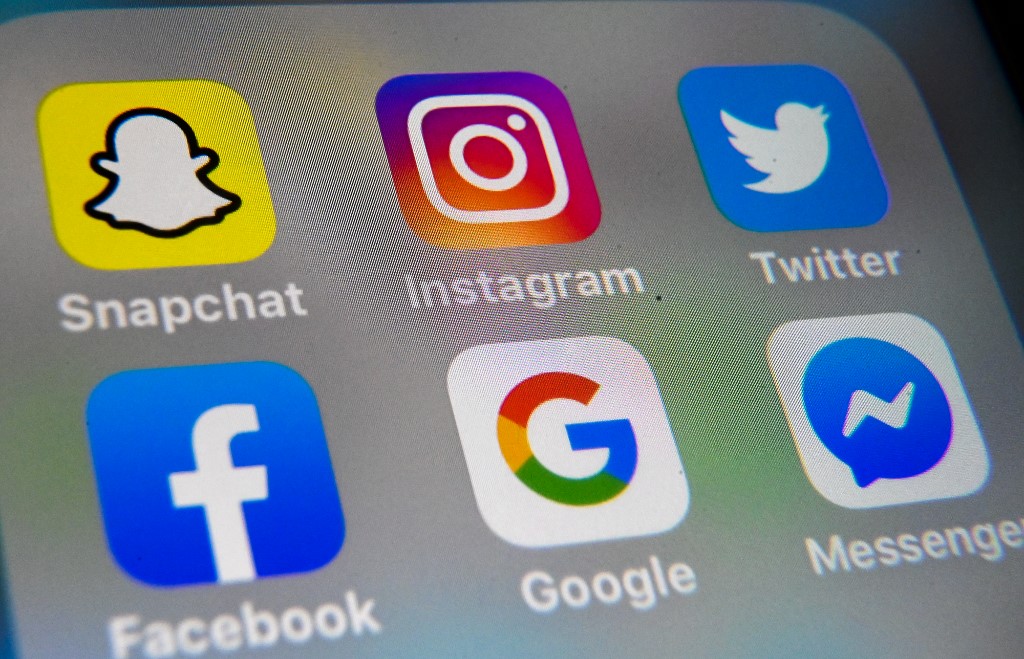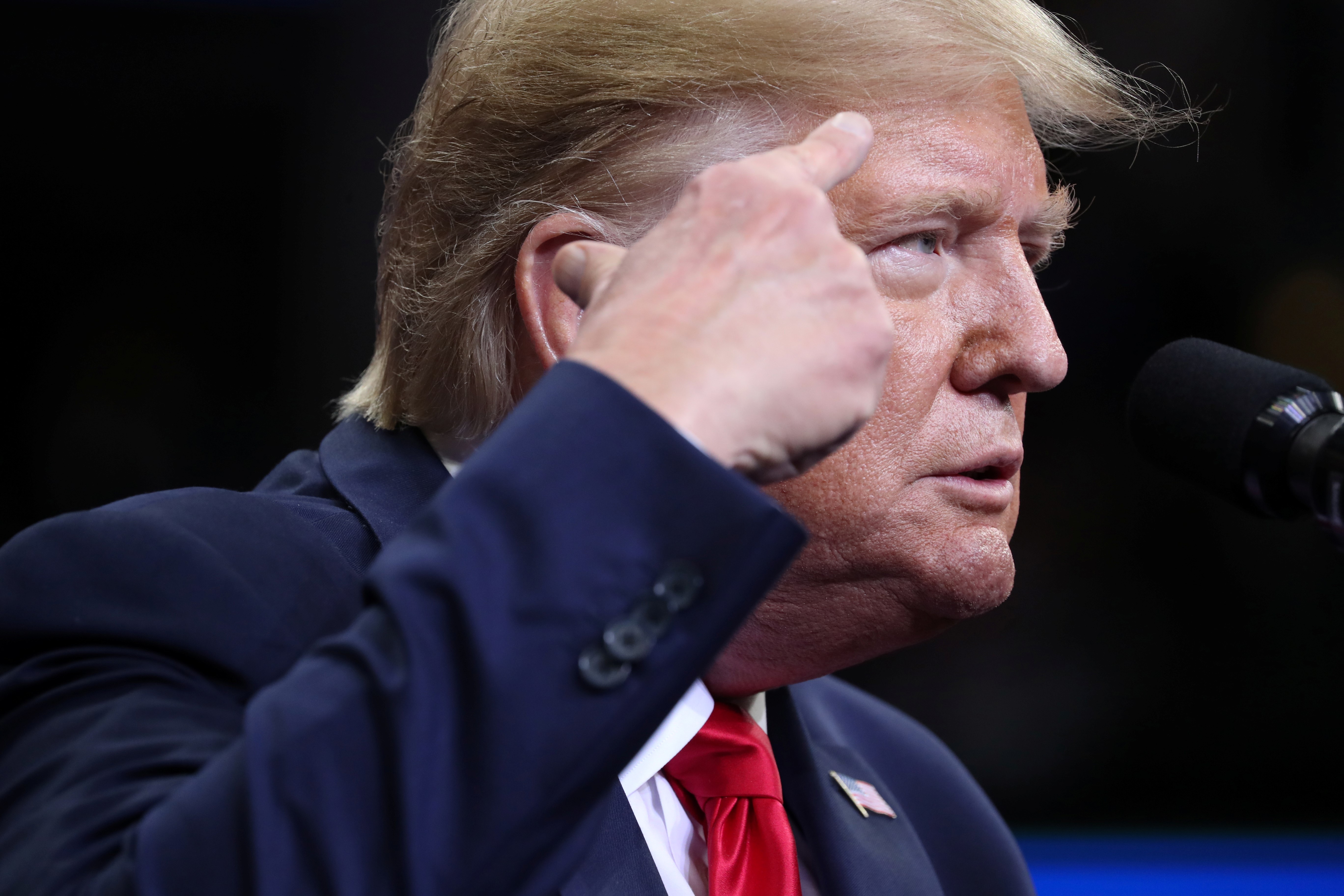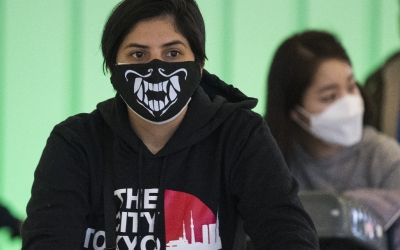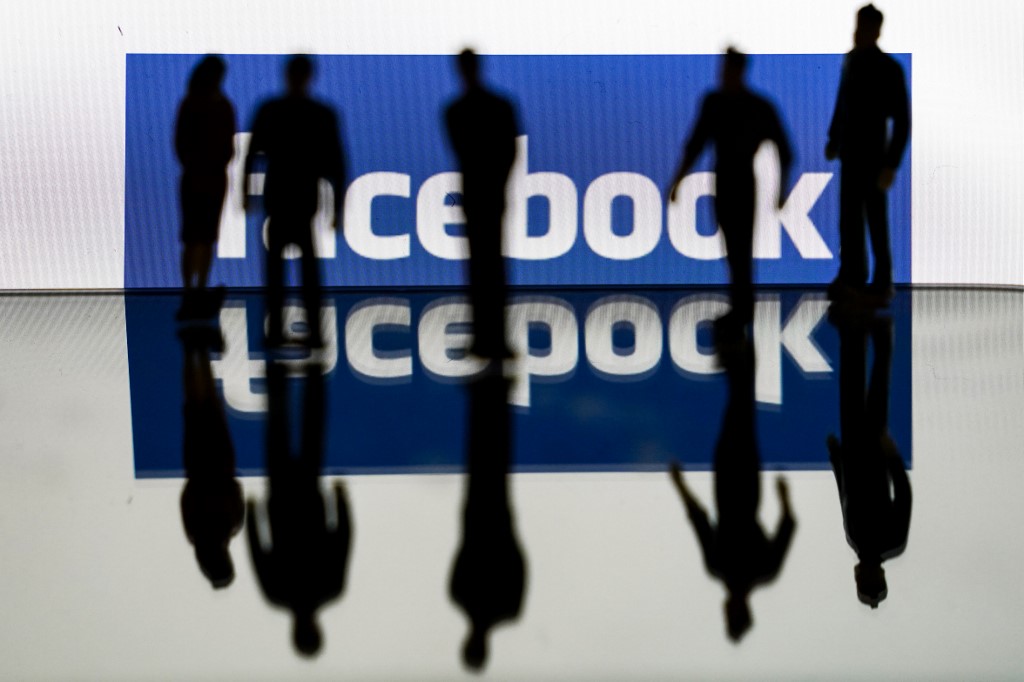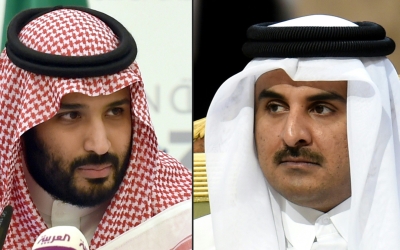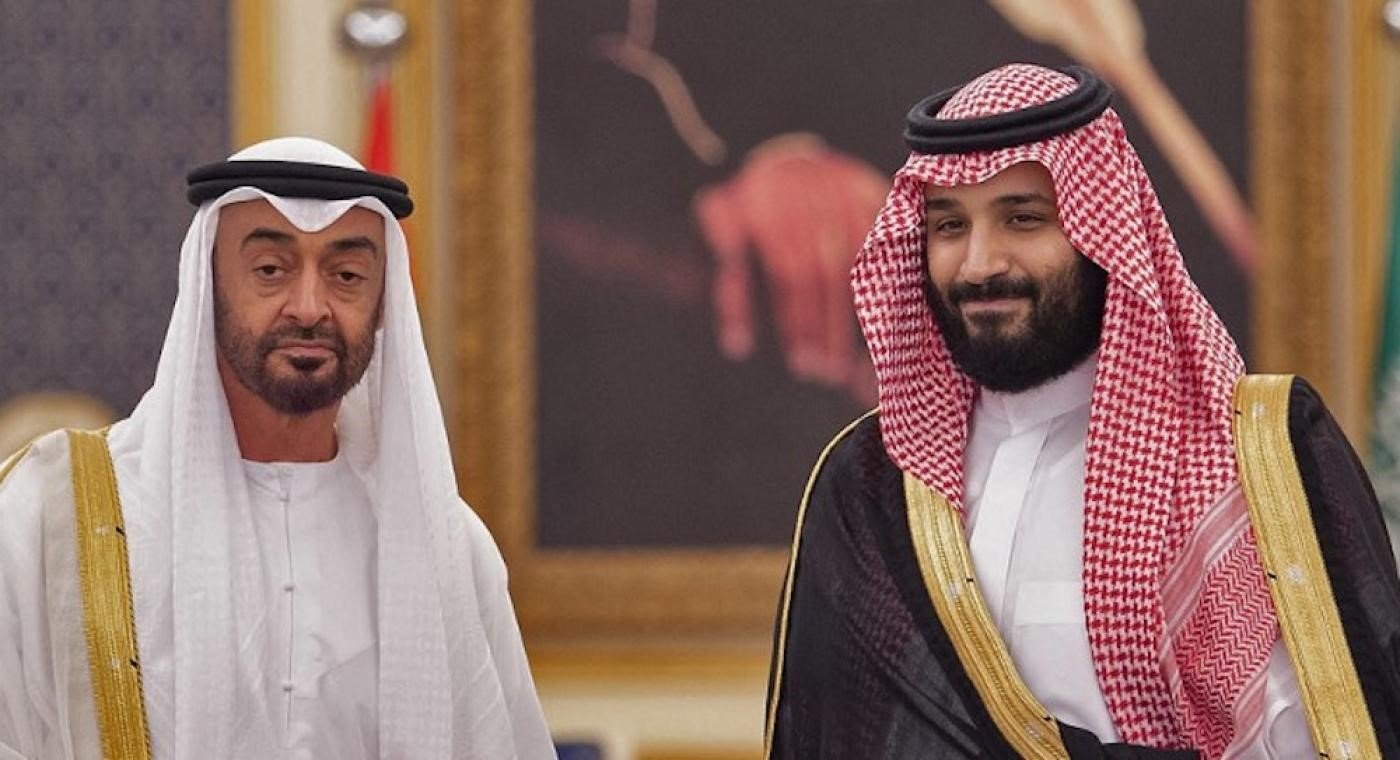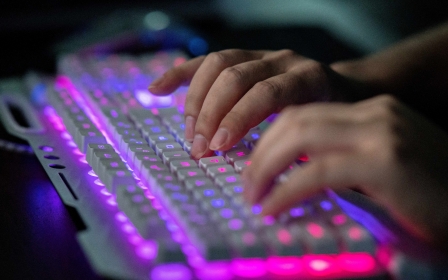How digital authoritarianism has permeated the Middle East

Over the past ten years, and in the wake of the Arab Spring, while writing about various aspects of Gulf politics and media, I have received death threats, threats of rape, and online pile-ons. I have had caricatures drawn of me as an Iranian puppet, and websites set up for the sole purposes of defaming me and other academics and activists. I have had impersonators set up social media accounts and write to local newspapers with political opinions contrary to those that I hold.
I have been the subject of multiple, often contradictory, smear campaigns. If my attackers are to be believed, I am both gay and homophobic, both an Iranian and Qatari stooge, both Shi’a and an atheist, and at times a Western secret agent. My colleagues and friends have been sent malicious spyware that steals their passwords, monitors phone calls, and even records videos from their webcams.
Disinformation can lead to indoctrination, which can lead to incitement. Depending on the nature of the indoctrination, incitement can lead to violence and even genocide
I have been banned from entering Bahrain for criticising government repression online, and even had my Twitter account temporarily suspended after numerous smear campaigns. I have drunk coffee with people who were later incarcerated for merely writing a tweet deemed too critical by their government. Over time, I have witnessed the psychological change and damage, within me, and others, who have been subjected to continuous online violence.
Welcome to the world of digital authoritarianism, where digital harassment, surveillance and disinformation are used in an attempt to control human behaviour. Digital authoritarianism is the “use of digital information technology by authoritarian regimes to surveil, repress, and manipulate domestic and foreign populations”.
It includes a wide gamut of repressive techniques, including “surveillance, censorship, social manipulation and harassment, cyber-attacks, internet shutdowns, and targeted persecution against online users”. An increasingly worrying component of social media manipulation is disinformation and misinformation; terms often used interchangeably to describe attempts to manipulate public opinion or give the illusion of public support for specific issues.
New MEE newsletter: Jerusalem Dispatch
Sign up to get the latest insights and analysis on Israel-Palestine, alongside Turkey Unpacked and other MEE newsletters
Although this book deals with multiple aspects of digital authoritarianism, its primary focus is on disinformation and deception through social media. Fundamentally, it asks how governments and other non-state actors use social media and digital technology to deceive and control citizens living in the MENA region, and more specifically, the Gulf region.
Disinformation and fake news
From Washington, DC in the United States to Riyadh in Saudi Arabia, disinformation and what is sometimes termed “fake news” is a global problem. It is part of what Claire Wardle describes as a growing “information disorder”. Since 2008, academic attention across disciplines, but especially psychology and communications, has been directed at understanding the purpose of disinformation.
However, while disinformation is not new, the digital technologies that are being exploited by those spreading disinformation are relatively recent. No longer are the more centralised mediums of television, print news and radio the sole - or indeed, the primary - means of distributing disinformation. The new reach afforded by digital media and social media platforms, abetted by the growing ubiquity of internet-enabled smartphones, is shifting the scale of the information disorder, and disinformation is fundamentally altering people’s perceptions of established truths and facts.
This is no different in the Middle East and North Africa. As a profoundly unequal region, the impact and takeup of digital technology are varied and differentiated according to governmental, business and consumer adoption. The United Arab Emirates, Bahrain and Qatar are among the top countries in the world with regard to digital consumer adoption, “with more than 100 per cent smartphone penetration and more than 70 per cent social media adoption” in 2016.
This is higher than in many parts of the United States and Northern Europe. Yemen, on the other hand, is one of the poorest countries in the world, and this is reflected in the fact it has the lowest internet penetration in the MENA region. Yet while internet penetration rates are increasing or have plateaued, social media is more subject to fluctuation.
For example, use of Twitter and Facebook is declining in the MENA region in general, although Saudi is still the world’s fifth-largest Twitter market, with 38% (10 million) of its population considered active users. Although the use of Twitter, WhatsApp, Facebook and, to an extent, Instagram is generally falling across the Middle East, in countries such as Egypt, Facebook use is increasing. Despite changing trends, the numbers of those using social media remain high.
New platforms may rise and fall, but the reality of how we communicate has been irreparably changed by digital technology. As a result, the extant challenges such technologies pose for the spread of disinformation are not going to disappear any time soon.
The growing dangers of deception
These dangers of the information disorder are becoming increasingly apparent. From the rise of those who reject vaccinations to those who believe the world is flat, fringe conspiracies are arguably becoming more mainstream thanks to a proliferation of alternative information sources abetted by an apparent rise in distrust in traditional authority, whether that be government communications offices or the mainstream media.
In his book on propaganda, Peter Pomerantsev argues that we are experiencing a “war against reality”. Here disinformation and deception seek to alter people’s views on reality through the discrediting of “experts”, the sowing of alternative explanations, and playing on people’s visceral emotions to make them feel more vulnerable and therefore receptive to falsehoods.
And it is serious. Disinformation can lead to indoctrination, which can lead to incitement. Depending on the nature of the indoctrination, incitement can lead to violence and even genocide. The Arab world has witnessed the tragedy of this. The rise of Daesh [the Islamic State group] has widely been attributed to the ability of disinformation, propaganda and indoctrination to transcend global borders via digital technology.
Even Facebook has acknowledged that its platform was used to incite what has been described as “genocidal” violence against Myanmar’s Rohingya Muslim population. The same was true in the “closed” environment of WhatsApp, where one video, for example, claimed to show Rohingya cannibalising Hindus. Of course, it was found to be false. Hundreds, and possibly thousands, of people may have died during the Covid-19 pandemic as a result of disinformation about the virus.
The war against reality risks undermining many of the advancements in critical thinking, science and knowledge creation that have been made over the past few centuries. It is no surprise then that disinformation and the attendant term “fake news” have become ubiquitous in the past decade. The terms, along with the expression “war against reality”, are bound up in the vocabulary of the “post-truth” age, wherein “objective facts are less influential in shaping public opinion than appeals to emotion and personal belief”.
The motivations for such falsehoods are myriad, and several explanations have been touted; false information makes companies more money, truth is boring, or disinformation for profit is itself a business model. However, while financial gains in the realm of commerce are often the objectives of the service provider, the clients of such disinformation cannot be overlooked. After all, without demand, there is no supply, and the post-truth age has played out in specific ways in the Gulf region.
A cornerstone of the new age of deception has been the trope of demonising the media
Another way to view fake news is not a fight about truth, but about power. As Mike Ananny notes, “Fake news ‘is evidence of a social phenomenon at play - a struggle between [how] different people envision what kind of world that they want’.” In the realm of politics, the terms post-truth and war against reality sometimes even seem like a quaint euphemism.
Michael Peters is more forceful, and highlights the phenomenon of “government by lying”, whereby demagogues and those on the fringes of political life use online media to disseminate controversial and often fallacious content in order to obtain power as a means of promoting their view of reality through policy or legislation.
The phenomenon is not confined to authoritarian regimes, but is also being driven by well-established democracies traditionally thought to have a relatively robust media that allowed for some plurality of opinion.
Democratic regimes have, with various levels of sophistication, deceived their people. Some of these lies, such as the claims that Iraq had weapons of mass destruction (WMD), were used to justify an immensely tragic war, the consequences of which are still being felt and will continue to be felt for generations.
We should not delude ourselves into thinking that deception is the purview of regimes classified as authoritarian. It is an illiberal practice common to every regime type.
Having said that, a key distinction between illiberal and authoritarian regimes is the presence of the press.
For Trump and other populists, the idea has been to discourage the exposure of potential supporters to criticism of Trumpism
A functioning and critical media, free from state control, has always been considered a mechanism by which to expose such lies and hold governments to account, even if this happens after the purpose of the lie has been achieved. However, despite the efforts of populists like Trump and Orban, a free press, however precarious, still exists in most European countries and North America.
That these institutions offer a key line of defence against the unfettered and unchallenged deception by autocratic leaders places them squarely in the realm of the enemy. For this reason, a cornerstone of the new age of deception has been the trope of demonising the media.
Trump’s exhortations of fake news media are not new. The German term Lugenpresse, or “lying media”, was used extensively in the nineteenth and twentieth centuries to discredit those media that contradicted the statements of particular political parties.
The term has even been used by the likes of Richard Spencer, an American neo-Nazi and president of the National Policy Institute. In addition to discrediting those news channels that criticise him or his allies, Trump has promoted a steady stream of news outlets that he believes are supportive of him, such as One America News Network (OANN). For Trump and other populists, the idea has been to discourage the exposure of potential supporters to criticism of Trumpism.
While lying is not a partisan notion, in the current post-truth age the rise of right-wing populism has brought with it a tide of deceptive influence campaigns.
The Washington Post revealed that President Donald Trump had made approximately 22,000 false or misleading claims by the middle of 2020.Discrediting the press results from the existence a pluralistic media system, and thus is indicative of a desire to undo that pluralism in favour of a more monistic and authoritarian approach.
Although figures such as Donald Trump might have pathological characteristics that encourage their tendency to govern through deception, the emergence of what has been described as “truth decay” has been partly spurred on by a loosely regulated digital environment.
Without established safeguards and gatekeepers setting the agenda through vertically organised media platforms as well as the deterioration of sovereign boundaries that separate national news from the international information ecosystem, disinformation has become detached from its parochial context.
A tweet sent by someone in Hong Kong can be read instantly by someone in Argentina. Regardless of whether you agree with a message or not, the swift and immediate transmission of messages, however erroneous or truthful, has become accessible to the multitudes.
This is not to advocate for vertically owned media structures that maximise the control of certain gatekeepers. Naturally, the benefits of challenging traditional media monopolies should be clear by this point. Globalisation, satellite TV and now the internet have challenged the ability of dictators and democracies to control their own domestic ecosystems. Whether we like it or not, technological change has resulted, to some extent, in a regional and global pluralism.
Digital citizen journalism, activism and open source investigations have all contributed to creating new streams of accountability that promote transparency and openness. But this book is not about the positive aspects of our digital information ecosystem; it is about the manipulation of truths and facts designed to serve the agenda of powerful actors that primarily seek to censor and mislead their populations.
It is about the “deception order” that works together to enact a war on truth that threatens the shared reality in which we live, whether that’s about medical science or harmful lies about a particular ethnic group. Fundamentally, it is about documenting weaponised deception that results in widespread suffering and misery, or the perpetuation of political systems that promote corruption and inequality.
It is important to note that disinformation transcends borders, and malign actors are using disinformation to influence the foreign policy of other countries to further their own interests. Digital globalisation does not necessarily respect the sovereignty of states or the increasingly porous digital boundaries embodied in the term “world wide web”.
Disinformation transcends borders, and malign actors are using disinformation to influence the foreign policy of other countries to further their own interests
The information ecosystems in liberal democratic states have, to varying extents, created a space in which institutions act transparently in order that their facts and “truths” may be contested and validated. This creates a reciprocal level of trust that affirms and establishes the authority of institutions through their accountability to those whom they serve.
And while partisanship over moral and ethical choices may thrive, the trust imbued by this reciprocal relationship, to no small extent, encourages a shared set of specific ideological values. This shared reality, while allowing for disagreement and conjecture, is still mostly bounded by a mutual set of assumptions about science, civility and the nature of truth - aspects socialised through state education and other hegemonic endeavours. However, the rise of post-truth politics has highlighted the fragility of this relationship, and the vulnerability of sovereign media ecosystems to the transnational nature of digital media.
It is the functionality of software created as far afield as Silicon Valley, combined with the malicious intentions of specific bad actors, that are undermining this shared reality inside and outside their specific polity boundaries (assuming they are a state). Populists and bad actors, wherever they may be, are able to subvert these norms for their own ends.
Situating the Middle East
Despite this urgency, up until now the study of disinformation has tended to privilege a Cold War paradigm, which frames Russia and China as forces undermining US and European security. The focus is rarely on the Middle East and Western-allied Gulf states. In a similar vein, there has been a tendency to focus on actors who produce their own capabilities, such as China and Russia.
This is not to diminish such research, but simply to argue that there is a normative tendency to focus on these states as the main actors in the disinformation ecosystem. It is a field dominated by transatlantic security concerns. From a communications and political science perspective, much of the existing non-MENA literature is also focused on the disinformation propagated by the rise of the far right, both in the United States and across Europe.
This has been especially true within liberal democracies, which have often framed the rise of disinformation as being integral to the decline of democracy and to a renewed interest in libertarian or authoritarian principles. It also makes sense, as disinformation has arguably been both the product and symptom of the resurgence of populism. Parallels drawn with the rise of European fascism in the 1930s have also created an understandable sense of urgency in trying to understand the role of propaganda, deception and populism.
However, for those living in the Middle East, disinformation is all too familiar. But, like other regions beyond Europe and the English-speaking world, it is neglected by social media companies too.
BuzzFeed’s Craig Silverman notes how Facebook tended to be US-focused when dealing with disinformation. Sophie Zhang, a former Facebook employee, highlighted how Facebook tended to ignore or delay dealing with platform manipulation in places that would not cause an overt PR backlash. Conversely, it is this seeming indifference from tech firms in the so-called Global North that facilitates illiberal practices across vast swathes of the globe. It has become abundantly clear that the research agenda needs to focus on disinformation in the Middle East and Africa.
Extant disinformation studies on MENA have tended to conform to Western foreign policy concerns, for example, Daesh and Iran as bad actors. The rise of Daesh has thrown into sharp relief the power of non-state actors to spread gruesome and morbid propaganda. It has also reflected the fact that disinformation or propaganda has tended to elicit interest from Western policymakers only when it poses threats to Western civilians or interests.
Yet the rise of Daesh itself, both on- and offline, can partly be attributed to a tendency to ignore the initial indicators of a looming crisis before it breaks into the mainstream. Without wishing to undermine the importance of studying the likes of Daesh, or indeed, their disinformation, it tends to divert limited attention from the sheer scourge of disinformation generated by MENA state actors that are well integrated and legitimised within the international community.
States, just as they interact with other entities, are also able to more easily project their power beyond borders when it comes to digital authoritarianism
Of course, this does not mean there is not a burgeoning network of scholars, activists, policymakers and journalists working to document and highlight the prevalence of disinformation in the Middle East. Fact-checking sites such as the Jordanian-based fatbyanno (meaning “just check” in Arabic) and Misbar have been pioneering Arabic language fact checking. But they have their work cut out; with over 400 million Arabic speakers worldwide, and a media ecosystem plagued by disinformation, efforts are limited. Much research has been issue focused, with published articles seeking to elaborate on specific events, such as the murder of Jamal Khashoggi, or the Gulf Crisis, or religiously framed Covid-19 disinformation.
There are also emerging studies based on country cases and demography. Sub types of disinformation connected to cybersecurity, such as studies on “hack and leak operations”, shed important light on the minutiae of tactics and how they resonate in a regional context. However, due to the need to highlight disinformation campaigns rapidly, the snail-paced aspect of academic publishing creates a lag around what is a rapidly changing and urgent problem.
The new methods required to do open source and forensic analysis are also creating a chasm in the literature between those working in the realm of computer science and the social sciences. Empirical studies are increasingly documented by reputable news outlets working with researchers, and research organisations focused on technology and digital forensics.
The Citizen Lab, based at the University of Toronto, has published numerous forensic investigations on digital authoritarianism across the region, and for some time ran a periodical update entitled The Middle East and North Africa CyberWatch.The Stanford Internet Observatory has also established relationships with companies like Facebook and Twitter, and frequently publishes analyses of state-backed information operations emanating from the Middle East based on data provided on those countries. Similarly, the Global Inventory of Organized Social Media Manipulation published annually by the Oxford Internet Institute interviews subject area experts to document the nature of disinformation in a worldwide context.
The European Union is also beginning to resource tackling disinformation, and, as Mariatje Shaake has noted, “Europe” is one of the only serious regulators of big tech. Given the wide range of methods required to study and identify disinformation, it does not sit comfortably within a single academic discipline.
It can seem somewhat arbitrary to focus on countries equally when studying a whole region. The term MENA is a problematic term used to describe diverse populations, languages, historical experiences and political traditions, not to mention increasingly divergent foreign policies and domestic priorities. Nonetheless, without wishing to appear reductive, many of the states are still bound by common strands, especially with regard to religion, language and legacies of imperial or colonial domination. At the very least, it is a useful, albeit flawed, heuristic.
In the context of this book, the MENA is also a nexus, where multiple actors compete for interest. Part of de-essentialising any region is to acknowledge that the “deception order” is not confined to authoritarian states hermetically sealed into neatly packaged geopolitical regions.
While the role of the internet and digital media has spanned multiple disciplinary spheres, there is still a tendency within research on the region, and more broadly on the global context, to focus on the state as a key unit of analysis - whether in terms of state policies or state activities. This is particularly true of relevant studies of authoritarian resilience in the region, which focus on regime survival. Much of the capability of MENA-based actors comes from the utilisation of technologies and human resources from China, Europe and North America, which often permit such expertise to be shared on the basis that many of these countries share overlapping foreign policy goals.
This is not to discount the role of the state, but rather to acknowledge it as one actor among many in the creation of digital authoritarianism, and that states, just as they interact with other entities, are also able to more easily project their power beyond borders when it comes to digital authoritarianism.
Digital authoritarianism is a transnational endeavour, and new digital powers, nodes or hubs that project their influence electronically are emerging
An aspect of this book is that digital authoritarianism involves a decoupling and despatialisation of authoritarian practices, beyond traditional state boundaries. Digital authoritarianism is a transnational endeavour, and new digital powers, nodes or hubs that project their influence electronically are emerging. An underlying element of this is neoliberation technology, discussed in the following chapter.
So while these agglomerations of disinformation actors span continents, MENA here generally refers to the locations and populations targeted and exploited in the context of these operations, and that emanate from the deception order outlined in Chapter 2. At the same time, while the book deals with numerous case studies, the focus tends to be on events and actors in the Persian Gulf. Indeed, as this book argues, the politics of the Gulf region have resulted in numerous global deception operations since 2011.
With the majority of Gulf states rated by most indices as authoritarian, the need to understand digital illiberal practices is as pertinent as ever. The fact that the study of digital disinformation is relatively new, and that the Middle East is often overlooked, means that many pertinent questions remain unanswered. These questions span multiple disciplines, but especially International Relations, Political Science and Communications. In the area of Communications, Ferrara et al. note the urgent task of identifying the “puppet masters”.
Indeed, by exploring whom bots target, what they talk about, and when they take action, we might be able to determine who is behind them. Such inquiries overlap with the demands of IR theorists, who seek to understand “why states and non-state actors use disinformation, and why disinformation appears to be ever more present in modern-day international politics than ever before”.
To do this we must first document and uncover deception operations, and then determine who is responsible, how they work, and on what scale they operate. We can do this by examining the discursive, tactical and strategic qualities of deceptive content. By answering these questions we can begin to understand who the largest deception players in the region are, and what it is they are seeking to achieve.
The Gulf's post-truth 'moment'
With the above in mind, this book makes the case for a Gulf post-truth “moment”, a period of time characterised by the strengthening of digital authoritarianism and led primarily by the Gulf Cooperation Council (GCC) states of Saudi Arabia and the United Arab Emirates. The book seeks to explain both why this moment has emerged and its various modalities - i.e. what are the tactics and methods of deception? One of the overarching arguments is that the techno optimism characterised by the Arab Uprisings that began in 2010 has given way to the rise of digital authoritarianism, a central tenet of which is deception.
Social media and digital technology, which helped fuel the Arab Uprisings, is now being used as a tool of counter-revolutionary repression, particularly by certain Gulf states, to protect the authoritarian status quo across the MENA region, especially from perceived “Islamist” threats and Iranian expansionism.
Although this book explores the chains of information operations across multiple states and actors, it focuses on the biggest players - in line with the normative tendency to focus on dominant actors. In particular, it argues that Saudi Arabia, and to some extent the United Arab Emirates, are the main projectors of digital media power in the Arabic-speaking Middle East.
It is worth noting that it is somewhat facile to assume that all countries or entities are engaging in such behaviours equally. Certainly, almost all countries will engage in information operations, but it is more fruitful to base such analyses about bad actors and their use of disinformation on the known sources of disinformation rather than seeking to generate false parity by overstating cases. To do so would just be to reify the concept of equality of disinformation based on an arbitrary state-centric parity between vastly different actors, whether in the MENA or otherwise.
Indeed, there is a reason why disinformation scholars often focus on the large powers such as Russia, China and Iran. Not all countries are equally powerful, populous, authoritarian and, as we shall see, deceptive.
Indeed, a useful question that derives from this is: who are the deception superpowers in the MENA region? By empirically documenting known disinformation campaigns, and the different and evolving forms of deception, this book lays out the case that Saudi Arabia in particular should be seen as a new digital superpower, at least in the realms of deception via social media, specifically Twitter. Here being a digital superpower involves using human resources and digital technology to launch influence operations on three fronts - domestically, regionally and internationally - in a sustained and evolving manner.
The impetus for this moment can be seen as the unsurprising evolution and “upgrading” of authoritarianism. That is, the tendency for authoritarian regimes to upgrade their capacity to resist dissent and adapt to new challenges (such as social media).
The Gulf’s post-truth moment can be characterised by the advent of a new era of Gulf politics, largely forged as an alliance between the Trump administration and the states of the UAE and Saudi Arabia. The Trump administration’s policy of maximum pressure on Iran and its drive to encourage normalisation between the Gulf and Israel have bred a fertile ground for disinformation and deception synergies.
This has overlapped with a new vision for the Middle East led chiefly by the rulers of Saudi Arabia and Abu Dhabi, Mohammed bin Salman (MBS) and Mohammed bin Zayed (MBZ). These two emerging autocrats have sought to place their respective nations at the helm of a new Gulf moment, one that seeks normalisation with Israel and increasing hostility towards Iran and political Islam.
The Gulf’s post-truth moment can also be defined by disinformation synergies, complementary disinformation narratives in which right wing American policy and the foreign policy goals of the Saudi and UAE feed off each other in mutually reinforcing tropes.
A striking aspect of the Gulf’s post-truth moment is the emergence of tyrannical and totalitarian tendencies. In order to create a “permanent state of mobilisation” where citizens advocate and defend their new “messianic” leader, totalitarian leaders often invoke external enemies in order to deflect from internal domestic criticism.
In the Gulf, Saudi Arabia and the UAE in particular have created an “axis of evil” consisting of the Muslim Brotherhood, Qatar, Turkey and Iran. Expressions of sympathy for these entities, as well as criticism of the Saudi and UAE governments, is firmly suppressed. As part of attempting to legitimise the re-orientation of Gulf politics, disinformation and propaganda efforts have focused around attempting to construct this axis of evil as a regional bogeyman threatening the GCC.
Crucially, this book highlights how the digital space in the Arab world is not a level or horizontal playing field in which individuals or states are competing equally: just as with more conventional military might, certain states pour more resources into their digital deception apparatus, which feed their varying strategic objectives. Similarly, as with any autocratic or totalitarian regime, personality of leaders matters when it comes to how those informational control strategies play out.
The above was excerpted from Digital Authoritarianism in the Middle East: Deception, Disinformation and Social Media (Hurst, 2022).
The views expressed in this article belong to the author and do not necessarily reflect the editorial policy of Middle East Eye.
This article is available in French on Middle East Eye French edition.
Middle East Eye delivers independent and unrivalled coverage and analysis of the Middle East, North Africa and beyond. To learn more about republishing this content and the associated fees, please fill out this form. More about MEE can be found here.



